Treating Your Child’s Cold or Fever

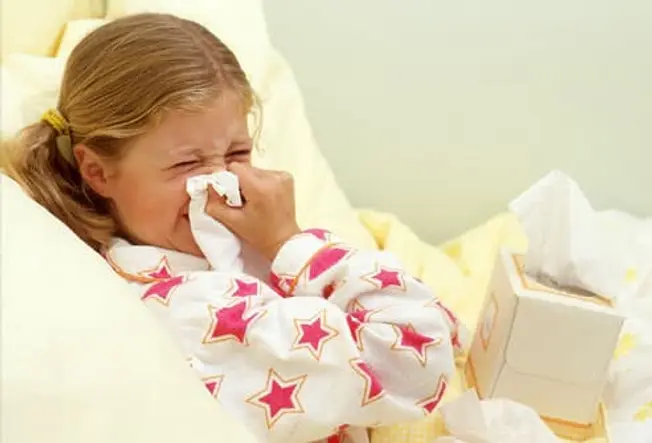
How can you soothe and treat your child's cold?
Use this quick pictorial Q&A guide to see how to soothe your sick child at home. Learn how to safely give over-the-counter (OTC) medicines if needed to ease a fever, runny nose, sore throat, or other common cold symptoms. If your child is under one month of age, consult with their doctor before giving them any medication.
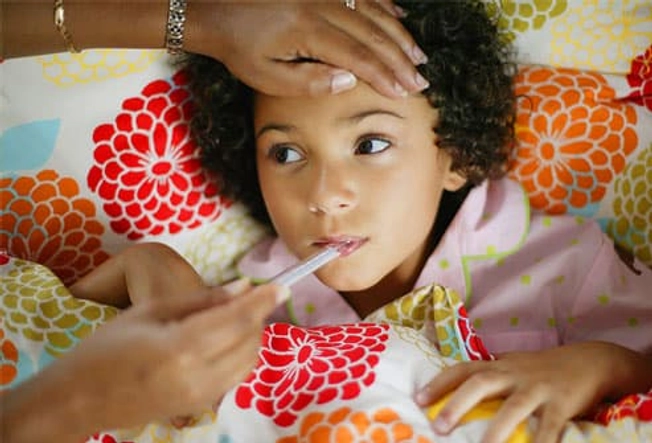
What should I do if my child has a fever?
Pediatricians say a fever is significant when it's 100.4 degrees or more. If your child has a fever, call the doctor if they're younger than 6 months; has other symptoms; has had a fever for more than two days; or has not been vaccinated. In other cases, it's usually safe to use children's ibuprofen or acetaminophen. Never give a child aspirin. It poses a risk of Reye's syndrome, a rare but serious illness that affects the liver and brain.
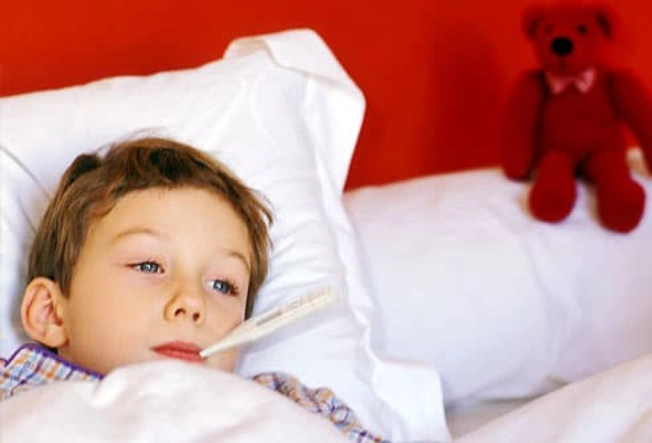
What else can I do to bring down my child’s temperature?
A sponge bath with lukewarm water may help. Never use cold water, ice, or rubbing alcohol. Dress your child lightly and don’t pile on blankets. Watch for signs of dehydration. Call the doctor immediately or go to the emergency room if your infant has dry diapers, a dry mouth or tongue, a dark red or purple rash, or is not feeding well. For an older child, call the doctor if they appear dehydrated, is not urinating enough, is not drinking well, or is not acting normally.
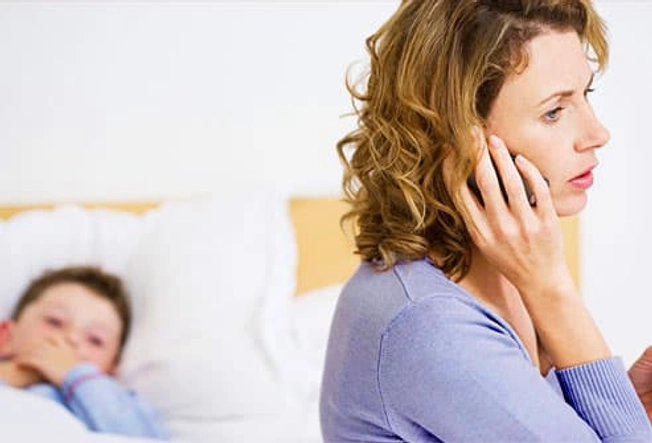
When do I need to call my pediatrician?
Aside from fever and dehydration, know when to call the doctor. Call if your child is younger than 12 months and you think they have the flu, or if they are not drinking or urinating enough. And call if they have yellow or green nasal mucus; any discharge after 10 days; or discharge coming from their eyes. Call if the fever has persisted for two days or more. But go to the emergency room if your child has trouble breathing, is acting very sick, refuses to eat or drink, has a rash, or you are concerned.
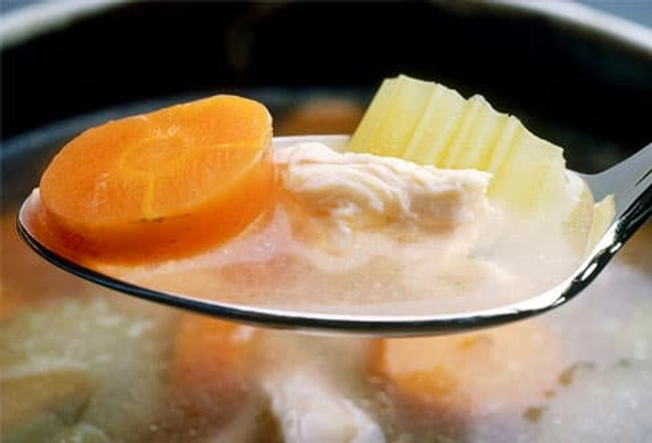
Will chicken soup really help my child's cold?
Yes. Some studies show chicken soup may help reduce inflammation. If nothing else, it's nutritious and can help prevent dehydration. Also give plenty of other fluids, like water, milk, or an electrolyte solution. Other home remedies to try: Inhaled steam from a hot shower or a cool mist vaporizer may help a stuffy nose. Menthol chest rubs can help loosen mucus to be coughed out. Nasal saline or a saline gel may also help. Do not use medicated vapor in children under 2. Petroleum jelly under the nose can soothe irritated skin.
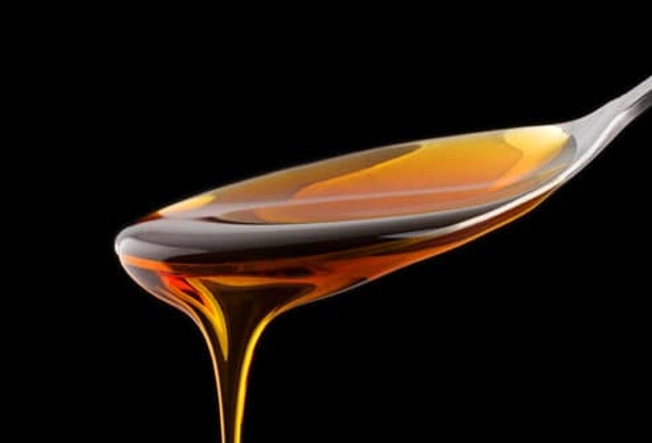
What eases a sore throat and cough?
Most sore throats are caused by colds and last about four to five days. For kids over the age of 2, give warm, non-caffeinated tea or water with 1/2 teaspoon of honey and lemon to ease a sore throat and cough. Try 1 teaspoon of buckwheat honey by itself to ease a cough in kids over the age of 1. DO NOT give honey to kids younger than 1 year old. For kids 6 and older, hard candy or over-the-counter lozenges with anesthetic can help reduce pain. Gargling with warm salt water may help, too. Strep throat tends to come on suddenly and not be accompanied by cold symptoms. Call your doctor if you suspect strep -- your child needs antibiotics.
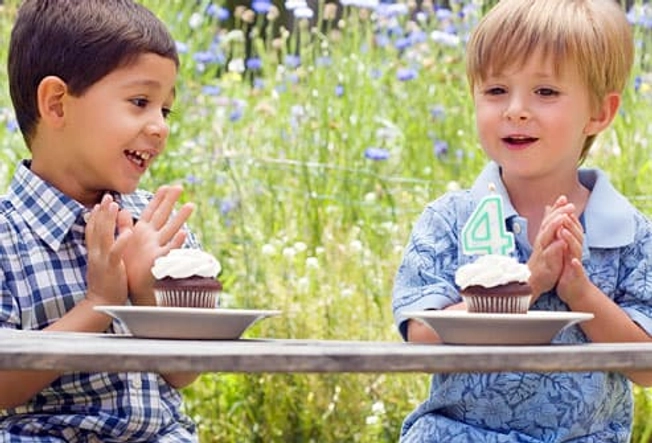
How old does my child need to be to take cough or cold medicine?
Don't give over-the-counter cold medicine or cough medicine to children younger than 4. Several studies have shown that these OTC medicines don't actually help symptoms in children so young. In fact, they may cause serious and potentially life-threatening side effects. To ease cold symptoms, give extra fluids, use a nasal aspirator, and use a humidifier.
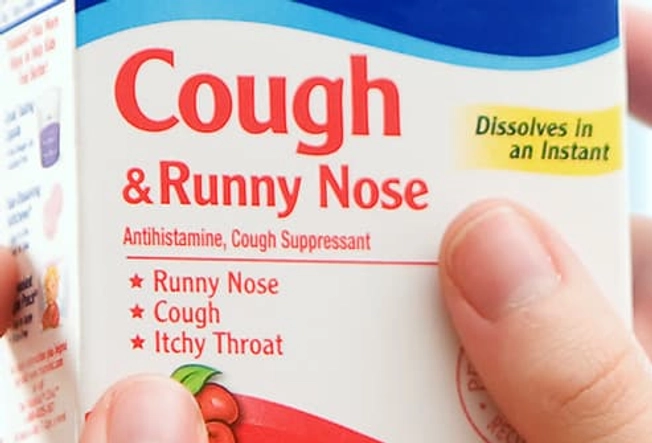
When my child has a cold and a cough, should I give one medicine or two?
Choose medicines only for the symptoms your child has. So, it's OK to give one multi-symptom over-the-counter medicine -- as long as it fits your child's symptoms. To avoid over-medicating your child, read and follow the directions, use the measuring device that is packaged with the medication, and don't choose products that treat symptoms your child doesn't have. For instance, don't choose a multi-symptom cold medicine or cough medicine for only a sore throat.
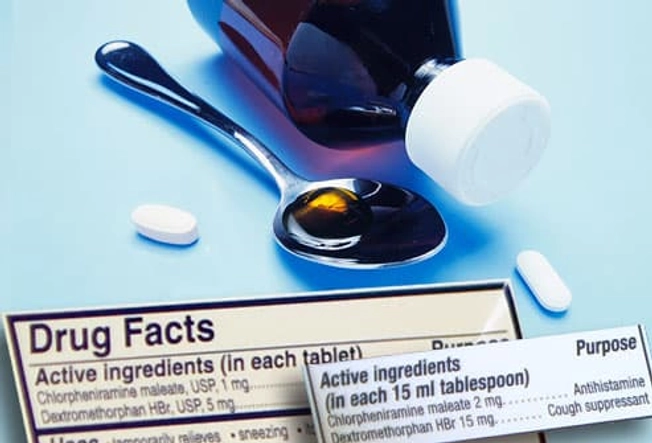
If you give two medicines, don't double up on a drug.
Be sure you don't give your child two over-the-counter medicines with the same active ingredients. For example, many cold medicines for kids contain acetaminophen -- which is the same as Tylenol. In the same way, a cough medication may also contain other ingredients to treat congestion. So it's easy to unintentionally double a child's dose if you don't read carefully. Compare ingredients in the 'Drug Facts' box so you don't risk giving your child an overdose.
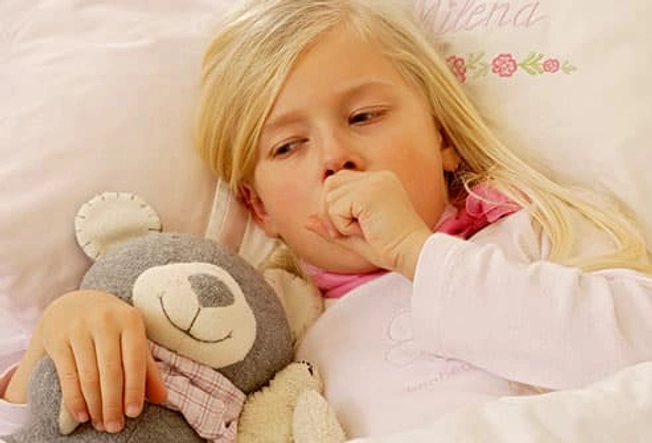
Decongestant, expectorant -- what do I give when?
Decongestants shrink stuffy nasal passages. They're available as nasal drops or oral medicine. Nasal drops should not be used for more than 2-3 days in a row. Cough expectorants may help thin mucus so it can be coughed up. Your child needs to drink a lot of water for an expectorant to work. Cough suppressants don't help get rid of mucus. Even if a cough keeps a child awake at night, it's usually better not to suppress it. You should not give any cold medicine to a child under 4.
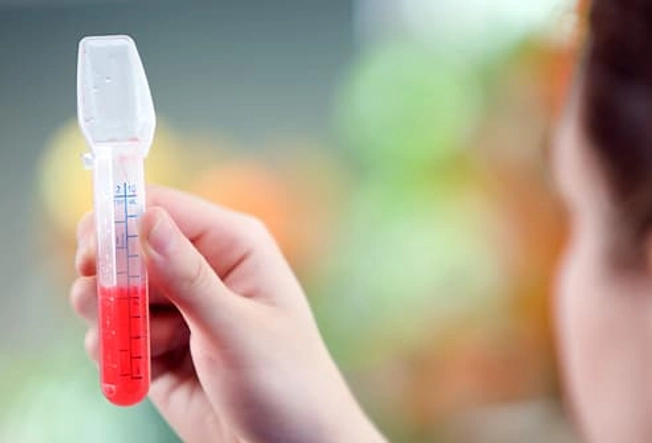
How do I figure out the right dose?
Dose OTC medication according to the directions based on your child's age and weight. Read the "Warnings" sections for possible drug interactions and side effects. Pay attention to label abbreviations like Tbsp (tablespoon) and Tsp (teaspoon), oz. (ounces), ml. (milliliter), and mg. (milligram). Those are all very different measurements. And use the measuring device that is packaged with the medication. When treating fever with medicine, choose either acetominophen or ibuprofen. Do not alternate between the two -- it does not help, and it can cause confusion.
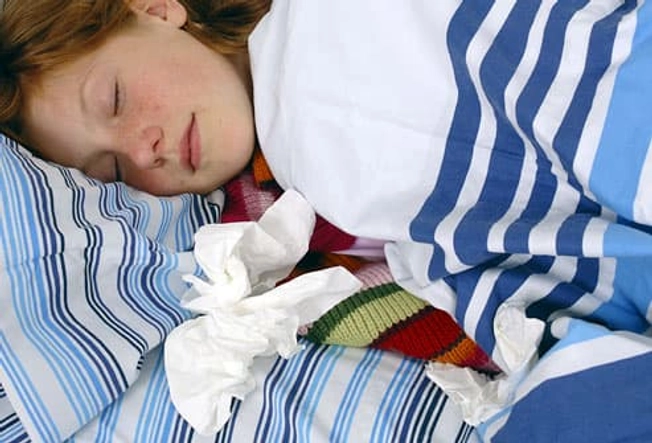
Should I wake my child up for a dose?
Rest is one of the best remedies for a cold, so let them sleep. If that means skipping a dose of over-the-counter medicine, don't worry -- you can give them the next dose when they wake up, or wait until morning. If your child has been taking an OTC medicine for more than three days, they should see their doctor.
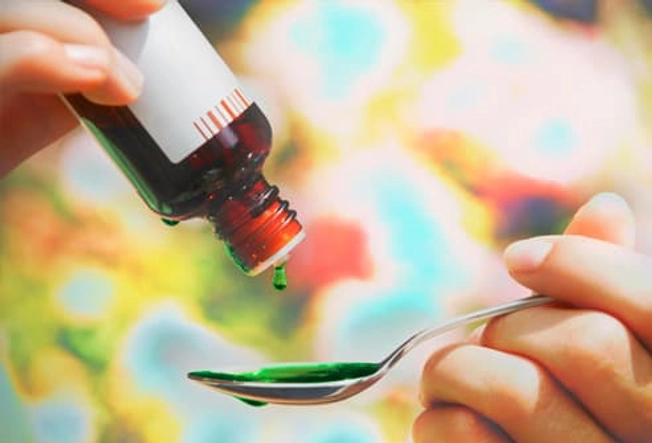
Does it really make a difference if I use a kitchen spoon for medicine?
It can. To be safe, avoid using common kitchen spoons, which can significantly vary in size. If your child's over-the-counter medicine came with its own cup or spoon, be sure to use it. What if there is no measuring device with the medication and the label says to give a dose of 2 teaspoons? Use an actual measuring spoon or dosing cup marked in teaspoons. That way you'll know you gave them the right dose -- enough to work, but not too much.
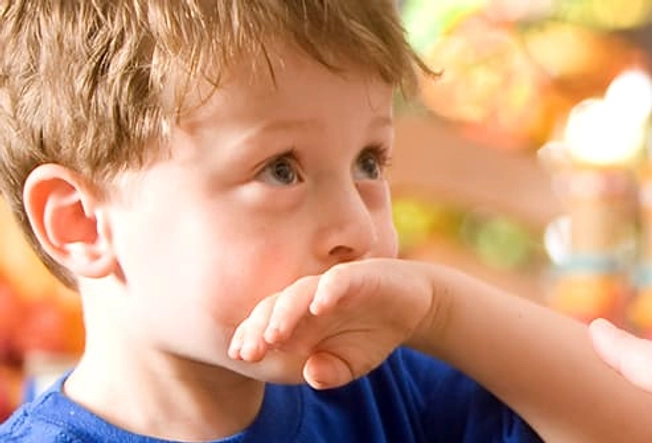
If my child vomits, should I give another dose?
No. If your child vomits up their medicine or spits some of it out, you may be tempted to give another dose. But you can't be sure how much of the OTC medicine your child actually swallowed, and giving another full dose risks giving too much. Instead, call your pediatrician for instructions. If your child hates the taste of the medicine, ask your pharmacist if you can mix it with a favorite food or drink.
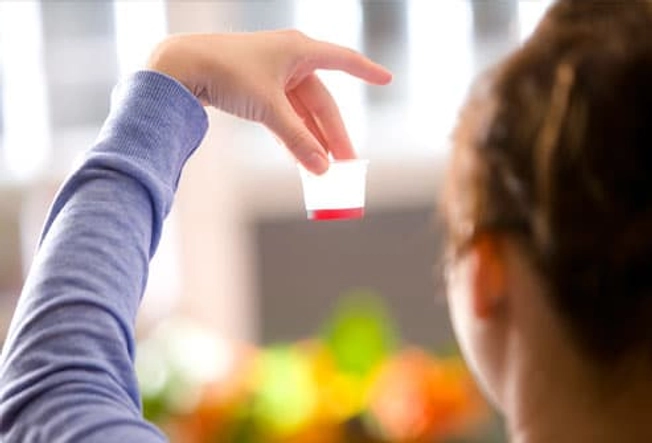
I don't have any children's medicine. Can I give half an adult dose?
Never give your child OTC medicines that are meant for adults. You'll just be guessing at the right dose, and some medicines are formulated differently for children. Use only products that are labeled for use in babies, infants, or children ("for pediatric use").
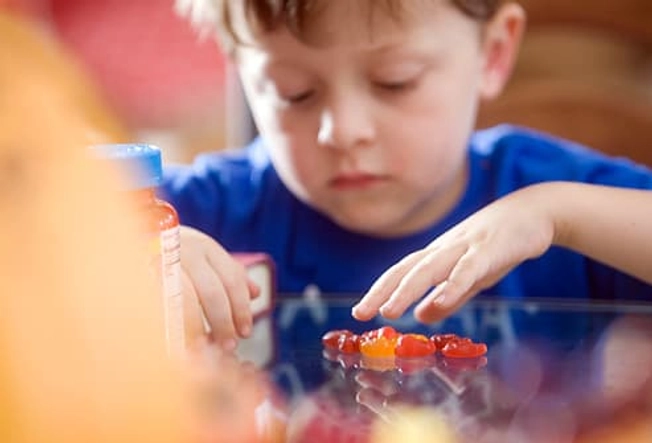
Don't call OTC medicine "candy."
Kids, especially young ones, love to imitate what adults do. Take these precautions:
- Avoid taking your own prescription or OTC medication in front of children.
- Be sure you never call any medicine "candy."
- Don't use sweet-tasting medication -- like children's vitamins -- as a reward. You can offer a favorite drink afterward to "wash the taste away."